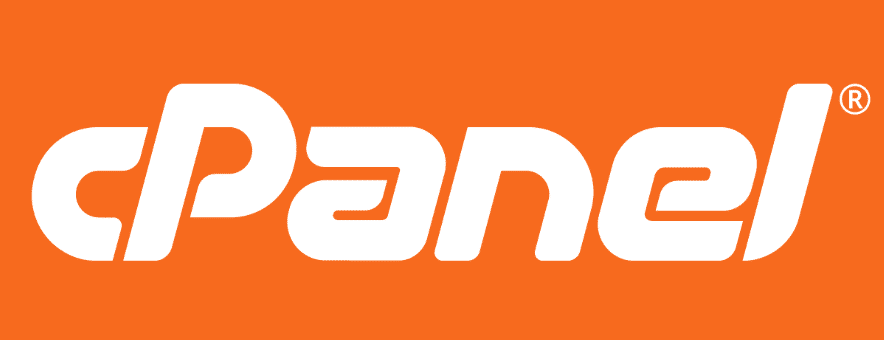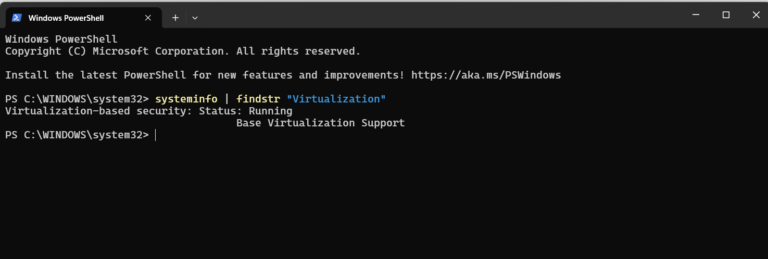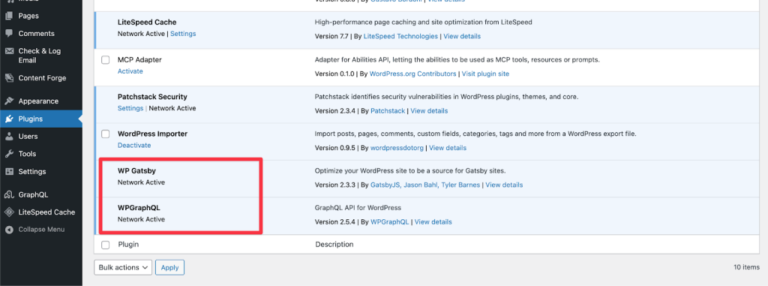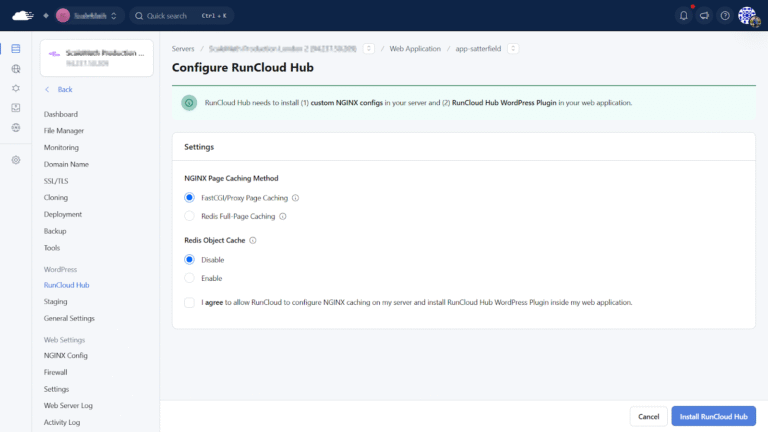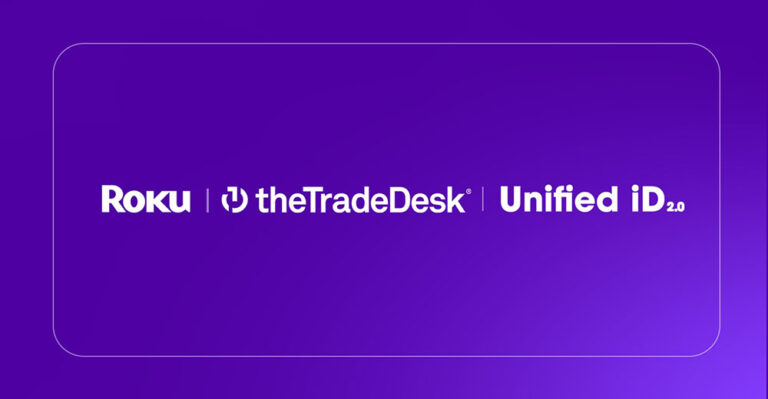In today’s digital landscape, having a personalized hosting experience can make all the difference in managing your website efficiently.
“Advanced cPanel Tips for Customising Your Hosting Experience” explores the world of cPanel, offering practical insights on how to tailor this powerful tool to meet your specific needs.
From selecting the perfect theme to utilizing advanced features, this guide covers:
- Optimizing performance
- Ensuring security
- Simplifying data management
Get ready to enhance your hosting journey!
Key Takeaways:
What is cPanel?
cPanel is a comprehensive web hosting control panel that facilitates efficient server management, allowing users to effectively manage their hosting accounts, domains, and websites. Tailored for both novice and experienced users, cPanel offers a user-friendly interface for executing various tasks, including setting up email accounts, managing databases, and installing applications such as WordPress. This makes it an essential tool for proficient web hosting.
The platform enables users to seamlessly navigate a wide array of functionalities, from DNS management to file transfers, thereby streamlining processes that would otherwise require significant time and effort. Features such as automated backups and robust security settings equip users to maintain their websites with ease while ensuring optimal performance and safeguarding against cyber threats.
Furthermore, the built-in analytics tools provide valuable insights into site traffic and usage patterns, thereby assisting users in making informed decisions regarding their online presence. In summary, cPanel significantly enhances the overall experience of web hosting management for both individuals and businesses.
Benefits of Customizing Your cPanel
Customizing the cPanel presents numerous advantages, particularly in the areas of website security, SEO marketing, and enhancing customer acquisition rates for small businesses. By tailoring the cPanel interface and tools to meet specific requirements, users can significantly improve their hosting experience, leading to increased average revenue and more effective management of customer data.
Enhanced security measures, such as customized firewall settings and regular backups, can safeguard sensitive information, thereby reducing the risk of data breaches by as much as 40%. Streamlining website management through personalized dashboards allows small business owners to efficiently monitor key performance indicators, optimizing their operational processes.
Furthermore, improved SEO capabilities can be achieved through well-configured redirects and meta tags, rendering websites more competitive in the digital landscape; research indicates that nearly 70% of users prefer organic search results. By implementing customer acquisition strategies through integrated analytics, businesses can enable targeted marketing efforts, ultimately increasing conversion rates and driving sales growth.
Customizing cPanel Themes
Customizing themes in cPanel is an essential step in enhancing user experience and ensuring that the interface aligns with the branding of small businesses. By selecting or creating a theme that reflects their brand, users can greatly improve navigation and accessibility, thereby facilitating more efficient management of their web hosting services.
Choosing the Right Theme for Your Needs
Selecting the appropriate theme for your cPanel is essential for both branding and user experience, as it significantly affects the ease of navigation within your hosting control panel. An appropriately chosen theme should align with your business identity while providing intuitive access to essential tools and features that facilitate efficient website management.
When evaluating a theme, it is important to consider the specific operations of your business; for example, e-commerce platforms may benefit from themes designed to emphasize product listings and payment integrations. Additionally, responsiveness should be a priority, as it determines how well the theme adapts to various devices, ensuring a seamless experience for both administrators and end users.
Focusing on usability helps to minimize the learning curve for staff while optimizing operational efficiency. Themes tailored to specific industries—such as photography or technology startups—often come pre-loaded with relevant features that directly address specialized needs, thereby enhancing overall functionality.
How to Install and Activate a New Theme
Installing and activating a new theme in cPanel is a straightforward procedure that enables users to personalize their web hosting experience. By adhering to a few simple steps, individuals can modify the appearance and functionality of their dashboard to better align with their preferences, thereby enhancing the efficiency of site management.
This process not only improves the visual appeal but also increases overall user engagement, facilitating easier navigation through the various available functions.
To initiate this process, access your cPanel account using your credentials. Once logged in, locate the ‘Themes’ section, which may vary slightly based on your hosting provider.
- Select your preferred theme from the available options. Upon selection, a preview will typically be displayed, allowing you to visualize how it will appear on your dashboard.
- It is essential to save your changes before exiting to ensure that your new theme is fully activated.
After the theme has been installed, exploring customization options—such as adjusting colors or layouts—can significantly enhance the user experience and drive productivity.
Utilizing Advanced Features of cPanel
Utilizing the advanced features of cPanel can greatly enhance the web hosting experience by providing robust tools for various tasks, including SSH access, automation of routine tasks through Cron jobs, and effective management of multiple domains.
These features enable small businesses to optimize their operations and improve overall website performance.
- Top 18 Best Web Hosting Services In 2024: Despite there are multiple web hosting providers available in the market, choosing the best one is really a hard nut to crack!! Because almost all service providers are offering their services with the same features and quality.
- How to start your own Crypto currency website: For a cryptocurrency news website, choosing the right Content Management System (CMS) is crucial for managing content effectively, ensuring security, and providing a great user experience. Here are some of the best CMS options tailored for such a site, each with its unique strengths:
- The Evolution of Coffee Brewing Methods: A Historical Perspective: Coffee has been brewed and enjoyed for centuries, with various methods evolving over time to create the perfect cup of joe. From early methods like the Ibrik method and coffee pots for coffee houses to modern technologies like the AeroPress and Hario V60, the world of coffee brewing has come a long way.
- Stop WordPress from Creating Extra Cropped Image Sizes: Whenever you upload an image to your WordPress site through the media library, it automatically creates and stores multiple additional versions of that image. If your site doesn’t utilize these extra image sizes, they will consume valuable storage space and increase the size of your server backups.
- Explain WordPress Portfolio and how to created them: WordPress portfolios are digital showcases for individuals or businesses to display their work, projects, or professional accomplishments. This feature is particularly useful for creatives, freelancers, and agencies looking to exhibit their skills or services in a visually appealing and organized manner. Portfolios in WordPress can be created using various methods, including themes that come with built-in portfolio functionalities, plugins that add portfolio features, or custom coding for a more personalized approach.
- 15 Essential WordPress Plugins For Every Site: Plugins are essential for every type of website, as they provide additional features and customization options that are not available in the core WordPress platform. A study by CodeinWP found that the average WordPress site has 20 active plugins, indicating the importance of plugins in website development.
- SAILING and YACHTING: Awesome Sailing Vlogs for the Enthusiast
- Comparing Google and Microsoft’s Success in Capitalizing on Generative AI: The buzz of interest in AI services helped drive revenue for Microsoft’s biggest unit, cloud services—up by 7 percentage points compared to a year ago—and Microsoft’s overall sales rose 17 percent to nearly $62 billion. It also gained cloud market share, Nadella added. The number of $100 million cloud deals that Microsoft landed increased 80 percent during the quarter compared to the same period a year ago, and $10 million deals doubled.
- The Best WordPress Hosting Solution in Australia: Each of our WordPress hosting solutions are fine-tuned, blazing fast and are ready for you! Starting a WordPress website has never been easier with our free 1-click WordPress installation, enterprise-grade security and an assortment of tutorials and helpful guides to get you started, all backed by our 99.9% uptime guarantee.
- Elementor vs Beaver Builder: A Comparison of Design Flexibility and Performance in WordPress: Elementor and Beaver Builder are two of the most widely recognized options, each providing distinct features that cater to varying user requirements. This article conducts a comprehensive comparison of these tools, examining their design flexibility, performance metrics, and overall user experience.
- The Best Contact Form Plugins for WordPress to Easily Manage User Inquiries: In an effort to improve user interactions on WordPress websites hosting, the examination of contact form plugins becomes essential. This article aims to present an overview of the top 5 contact form plugins available for WordPress, highlighting their features and pricing structures to facilitate an well-considered choices process.
- What are the 20 best Joomla plugins: Joomla plugins are small, task-specific extensions that enhance or modify the core functionality of a Joomla website. They operate as event-driven scripts, listening for specific “events” triggered by Joomla or its components and executing corresponding actions. Plugins are a crucial part of Joomla’s extensibility, allowing developers to add features or customise behaviour without altering the core Joomla code.
- How to design a strong off-page SEO strategy: Lessons learnt from earning over 50,000 contextual links for thousands of websites in the toughest niches. In 2023, virtually every business that has a website is prioritizing their investment in SEO. The reason being, amidst the chaos of the current year, customers are resorting to online channels for safe purchasing, and optimizing their online presence is a surefire way to gain an edge over rivals. While some firms have set up internal teams, and others have hired external agencies to boost their search engine rankings, a documented off-page SEO strategy is still a rarity among most businesses.
- What are WordPress Plugins? WordPress plugins are modular pieces of software that can be added to a WordPress site to extend or enhance its functionality without modifying the core WordPress code. They allow website owners to add features, improve performance, and customise the behaviour of their websites easily, catering to a wide range of needs, from SEO and security to e-commerce and design enhancements.
SSH Access and Terminal Commands
SSH access in cPanel provides users with secure remote access to their hosting server, allowing them to execute terminal commands for various server management tasks. This feature is particularly advantageous for developers and advanced users who require greater control over their web environment.
With SSH, users can securely connect to their servers from any location globally, thereby significantly simplifying the management of web hosting functionalities. To enable SSH access in cPanel, one must navigate to the SSH/Shell Access section and follow the prompts to configure the necessary settings. Once enabled, users can utilize a range of terminal commands, including file management, software installation, and system performance monitoring, all of which contribute to effective server maintenance.
While benefiting from the conveniences of SSH, users must also be mindful of security protocols, such as employing strong passwords and regularly updating access keys. Practical applications, such as utilizing rsync for backups or directly accessing logs for troubleshooting, illustrate how SSH can enhance operational efficiency in web hosting environments.
Automating Tasks with Cron Jobs
Automating tasks with Cron jobs in cPanel enables users to schedule routine processes, thereby enhancing efficiency and allowing small businesses to allocate their time more effectively. By configuring Cron jobs, users can automate essential tasks such as data backups, script executions, and various other operations, ensuring that critical processes are executed smoothly without the need for manual intervention.
This capability proves particularly advantageous for managing diverse website functions, including the distribution of newsletters, content updates, and routine system maintenance. A comprehensive understanding of how to leverage Cron jobs can substantially improve productivity by minimizing the need for constant monitoring and manual input.
With a few straightforward steps, individuals can effectively harness the power of automation, leading to improved resource allocation and, ultimately, enhanced service delivery. The following sections will provide a clear guide to setting up these jobs within cPanel, facilitating effective management of routine tasks.
Managing Domains Effectively
Effective management of domains within cPanel is crucial for maintaining a robust online presence, particularly for small businesses that frequently operate multiple websites. cPanel’s user-friendly interface enables users to efficiently add, remove, and configure domain settings, including DNS management and redirects.
This streamlined approach not only simplifies the management of various websites but also facilitates the easy creation of subdomains, which can be especially beneficial for organizing content or targeting specific audiences. Implementing efficient redirects is essential to ensure that visitors are directed to the appropriate pages, thereby significantly enhancing the user experience.
Adhering to best practices such as monitoring domain expiry dates, enabling domain privacy, and utilizing SSL certificates are critical steps in protecting online credibility. By prioritizing effective domain management, businesses can enhance their SEO initiatives, ultimately driving increased traffic and supporting customer acquisition strategies.
Optimizing Website Performance in cPanel
Optimizing website performance within cPanel is essential for ensuring fast loading times and providing an overall satisfactory user experience. By utilizing various features, such as the Optimize Website tool, implementing best practices for image and file compression, and adjusting PHP settings, users can significantly enhance the efficiency of their websites.
Using the Optimize Website Feature
The Optimize Website feature in cPanel provides users with the capability to enhance their website’s performance by enabling file compression, which results in faster loading times and an improved user experience. This essential tool is particularly advantageous for small businesses aiming to increase customer acquisition and retention.
By activating this feature, webmasters can effectively reduce the volume of data transferred to visitors, thereby significantly minimizing latency. To access this feature, users should log into cPanel, navigate to the “Software” section, and select “Optimize Website.” From this point, users can choose the desired compression level—either standard or conditional compression based on the client’s compatibility.
Enabling compression not only accelerates page load times but also positively impacts search engine rankings, as algorithms tend to favor websites that offer a swift and seamless user experience. This can result in higher engagement rates, lower bounce rates, and ultimately, increased conversion rates.
Best Practices for Image and File Compression
Implementing best practices for image and file compression is essential for optimizing website performance in cPanel, ensuring that pages load quickly and efficiently for users. By utilizing appropriate tools and techniques, small businesses can significantly reduce file sizes while maintaining quality, resulting in improved engagement and retention.
Focusing on efficient practices, such as using cPanel’s built-in ImageMagick tool or integrating third-party plugins like TinyPNG or EWWW Image Optimizer, can streamline the compression process. These tools not only compress images without compromising visual integrity but also support multiple file formats, making them versatile for various websites.
Properly compressed images consume less bandwidth and lead to faster loading times, which is critical in preventing elevated bounce rates that could adversely affect search engine rankings. By prioritizing file optimization, businesses can enhance the user experience, ultimately boosting conversions and strengthening their online presence.
Tuning PHP Settings for Enhanced Performance
Adjusting PHP settings in cPanel is a crucial step in enhancing website performance, as it enables users to customize the server environment to align with their specific requirements. Modifications to PHP settings can lead to improved resource utilization and faster response times, ultimately benefiting both small businesses and their clientele.
By adjusting variables such as memory limit, execution time, and file upload size, individuals can significantly impact the performance of their applications. For example, increasing the memory limit can accommodate larger datasets or more extensive applications, which is vital for resource-intensive tasks. Similarly, establishing an optimal maximum execution time helps prevent scripts from becoming unresponsive, thereby protecting user experience.
Implementing PHP opcache can substantially decrease loading times by caching bytecode, which is particularly beneficial for high-traffic websites. Consequently, mastering these settings not only contributes to achieving superior speed but also ensures the smooth functionality of web applications.
Backing Up and Restoring Data
Backing up and restoring data in cPanel is an essential practice for maintaining website security and ensuring that critical information is protected against data loss.
By utilizing automatic backup features and comprehensively understanding the restoration process, small businesses can safeguard their online assets and ensure continuity in their operations.
Setting Up Scheduled Backups
Establishing scheduled backups in cPanel is a critical measure for safeguarding your website’s data against unforeseen incidents, such as malware attacks or server failures. By configuring auto-backup options, users can ensure that their data is consistently saved without the need for manual intervention, thereby enhancing security and providing peace of mind.
This process is particularly vital for small businesses that depend significantly on digital operations, as the loss of essential data can result in considerable downtime and financial consequences.
To initiate scheduled backups, users should first navigate to the ‘Backup Wizard’ or ‘Backup’ section within cPanel, where they can select options such as full backups or home directory backups. Users have the flexibility to determine the frequency of these backups—daily, weekly, or monthly—based on the volatility of their data.
It is advisable to store backups in a remote location to ensure that, in the event of an issue with the primary server, a secure copy of essential data remains accessible and intact.
Restoring Data Using cPanel
Restoring data through cPanel is a straightforward procedure that enables users to retrieve lost or corrupted information efficiently, thereby ensuring minimal disruption to website operations. Understanding the effective restoration of backups give the power tos small businesses to maintain their online presence with confidence.
In the digital age, where information is essential for operational success, circumstances may arise that require data restoration. Whether due to accidental deletion, server crashes, or malicious attacks, a reliable backup strategy is critical.
The process begins with the user logging into the cPanel dashboard and navigating to the ‘Backup’ section, where options are available for restoring various types of data, such as databases or files.
- Step-by-step, users must select the appropriate backup file and follow the prompts to execute the restoration.
By ensuring that regular backups are maintained, businesses can significantly reduce downtime, facilitating seamless continuity even in the face of unforeseen challenges.
Security Best Practices
Implementing security best practices in cPanel is essential for protecting websites from potential threats, including malware and unauthorized access. By utilizing features such as SSL certificates and conducting regular maintenance updates, small businesses can enhance their website security and instill confidence in their customers.
Implementing SSL Certificates
Implementing SSL certificates in cPanel is a crucial step toward enhancing website security, as it encrypts data transmitted between users and the server, thereby protecting sensitive information from unauthorized access. Small businesses that prioritize the implementation of SSL can significantly enhance their website’s credibility and trustworthiness.
This process not only safeguards customer data but also fosters a sense of security among visitors, which can result in increased engagement and higher conversion rates. Additionally, possessing an SSL certificate can positively influence search engine rankings, as major search engines, including Google, give preference to websites secured with SSL.
For businesses aiming to cultivate long-term relationships with their customers, demonstrating a commitment to security through proper SSL installation is of paramount importance. Adopting this practice reassures customers that their personal and financial information is secure, ultimately leading to greater brand loyalty and trust in the digital environment.
Regular Maintenance and Software Updates
Conducting regular maintenance and software updates within cPanel is essential for ensuring optimal website performance and security. By keeping software up to date, small businesses can protect their websites from vulnerabilities and ensure compatibility with new technologies.
This proactive approach minimizes downtime, which can result in lost revenue and a negative user experience. To perform updates effectively, it is advisable to regularly back up website data before implementing any changes, utilize the automated update features that cPanel offers, and monitor compatibility with third-party plugins or themes.
Neglecting software maintenance can lead to significant consequences, including increased susceptibility to cyber attacks, degraded website performance, and potential loss of customer trust, ultimately impacting the overall success of the business.
Frequently Asked Questions (FAQs)
Frequently asked questions regarding cPanel and web hosting typically focus on its functionalities, best practices, and the effects of customization on small businesses.
Addressing these inquiries can provide valuable insights and help users maximize cPanel’s capabilities to improve their online presence.
1. What are the benefits of customizing cPanel?
The advantages of customizing cPanel encompass an improved user experience, enhanced website security, and streamlined management processes for web hosting. By tailoring the cPanel interface and settings, users can operate more efficiently and effectively address their specific requirements.
For example, small businesses can benefit from reorganizing frequently used features, which reduces the time spent navigating through less relevant options. This customized approach not only increases productivity but also facilitates quicker issue resolution, thereby enhancing overall website performance.
Furthermore, customized cPanel settings can bolster security measures; users have the opportunity to integrate additional security plugins and configure software to align with their specific protection needs.
Additionally, personalized analytics dashboards can deliver critical insights into performance metrics, enabling users to make informed decisions that enhance their web hosting strategy and ultimately contribute to business growth.
2. How can I optimize my website’s performance using cPanel?
Optimizing website performance using cPanel can be accomplished through various tools and features specifically designed to enhance speed and efficiency. By employing options such as caching, image compression, and PHP tuning, users can significantly improve their website’s loading times and overall performance.
Effectively utilizing these features not only enhances user satisfaction but also plays a vital role in search engine optimization (SEO). For example, enabling the built-in caching mechanism can alleviate server load and reduce load times by serving pre-built pages to visitors.
Tools such as ImageMagick or the integrated image optimizer can be employed to compress images without compromising quality, thereby improving the loading speed of visually intensive content. Additionally, adjusting PHP settings to utilize the latest versions can enhance code execution, resulting in faster and more efficient rendering processes.
These performance enhancements not only facilitate a smoother browsing experience but also positively influence a website’s search ranking, thereby reinforcing the importance of performance optimization.
3. What security measures should I take in cPanel?
Essential security measures in cPanel encompass the implementation of SSL certificates, conducting regular software updates, and utilizing strong passwords for user accounts. Adhering to these best practices allows users to significantly bolster their website’s protection against potential threats and vulnerabilities.
Plus these foundational steps, enabling two-factor authentication (2FA) is imperative for providing an additional layer of security to user accounts. Regularly backing up website data and email accounts is equally important to prevent potential data loss resulting from cyberattacks or server failures.
Users should also consider limiting access to cPanel by restricting IP addresses whenever feasible, thereby exercising control over who can manage their hosting environment. This comprehensive approach to security not only mitigates risks but also cultivates a sense of trust among visitors, ultimately protecting both the users’ interests and their clientele’s data.
Frequently Asked Questions
What is cPanel and how can it help me customise my hosting experience?
CPanel is a web-based control panel that allows you to manage your web hosting account and website. It provides a user-friendly interface for tasks such as creating email accounts, managing domains, and customising your hosting experience.
Can I add custom features or applications to my cPanel?
Yes, cPanel offers a wide range of add-ons and applications that you can install to enhance your hosting experience. These include popular website builders, e-commerce platforms, and security tools.
How can I create a personalized cPanel theme?
You can create a custom cPanel theme by accessing the “Customization” section in your cPanel dashboard. From there, you can upload your own logo and background image, change the color scheme, and even add custom HTML and CSS.
Is it possible to access cPanel on my smartphone or tablet?
Yes, cPanel has a mobile-friendly version that can be accessed through any smartphone or tablet. This allows you to manage your hosting experience on-the-go, making it easier to stay in control of your website.
How can I use cPanel to improve my website’s security?
CPanel offers various security tools such as SSL certificates, IP blockers, and password protection to keep your website and hosting account secure. You can also set up backup and restoration options to ensure your data is always safe.
Can I use cPanel to manage multiple websites from one account?
Yes, cPanel allows you to manage multiple websites from one account. You can create separate control panels for each website or use the same cPanel for all of them, depending on your preference and hosting plan.
